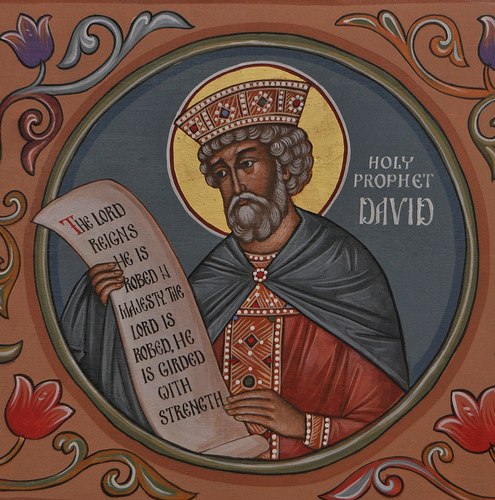Source: Notes on Arab Orthodoxy
October 18, 2015

David's "Be angry and do not sin" means to me that if someone provokes you to the point of anger, don't remain angry. You have nothing against the one who provoked you. Do not sink under the provocation. They want to provoke you so that you will sin. In this case, the Bible says "Be angry and do not sin" in the sense that reacting to harm done to you is reasonable, but reacting against the one who caused it is a sin.
When the Psalmist says "Be angry and do not sin," he does not make anger permissible, but rather he desires that if it comes about, that you do not take it to the point of hatred because forgiveness is a commandment. It is as though David is saying that he understands that anger happens but he limits it to the one who is angry and does not want it to spread. To put it more clearly, do not be angry at others because there is harm in this. Provocation is possible and natural. However, for it to be directed at another is a sin. In my experience of watching myself and others, I do not know of anger that is not harmful for the one who is angry and for others. It is an illegitimate response to a wound that has occurred, since God does not accept any response apart from forgiveness. The one who is angry with you wounds himself first. You should sorrow for his having wounded himself and have God as your comforter. If someone provokes strong anger in you, then weep for the salvation of your soul and your soul will remain free from it. When you anger, weep for your soul, not for the one who made you angry because what God wants is his healing. In many cases, the reality of anger is that someone has hurt you and injured what you refer to as your dignity.
When you react to anger that has been directed at you, you may magnify the wound that you have suffered. You will become weakened and will not have saved the one who is angry. If someone wounds you, remember that in reality he has wounded himself first. You are only struck by the blow that was directed at you if you want to become its victim.
If someone is angry at you, take pity on him and allow that he is in need of your kindness in order to be healed. By hurting you, the one who hurts you comes to be in need of you. Call upon your Lord for his sake. As he harms you, he remains your brother, even if he does not know it. The one who harms you is the person who most knows that he is in need of God's kindness through you.
The one who is angry does not know the viciousness of the harm it does to himself. The one who is the object of anger feels that he alone is wounded but the reality is that two are wounded. "Blessed are those whose sins are forgiven and whose transgressions are covered."
If someone is angry with you, have pity on him first of all, because he has hurt himself before hurting you. The wound of the one who is the object of anger is his knowledge that he has been driven out of existence or at least that you have driven him out of your heart. The one who has been deprived of love may be in the most extreme sadness. Do not put anyone in the desert. He might die there of asphyxiation.



